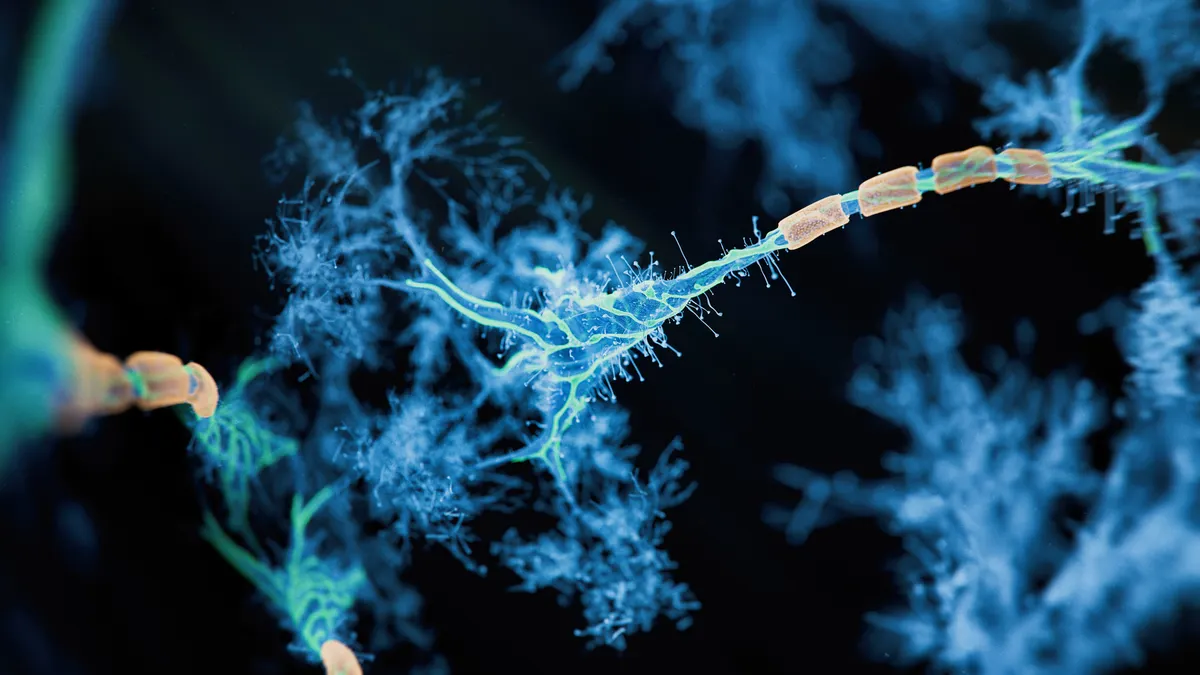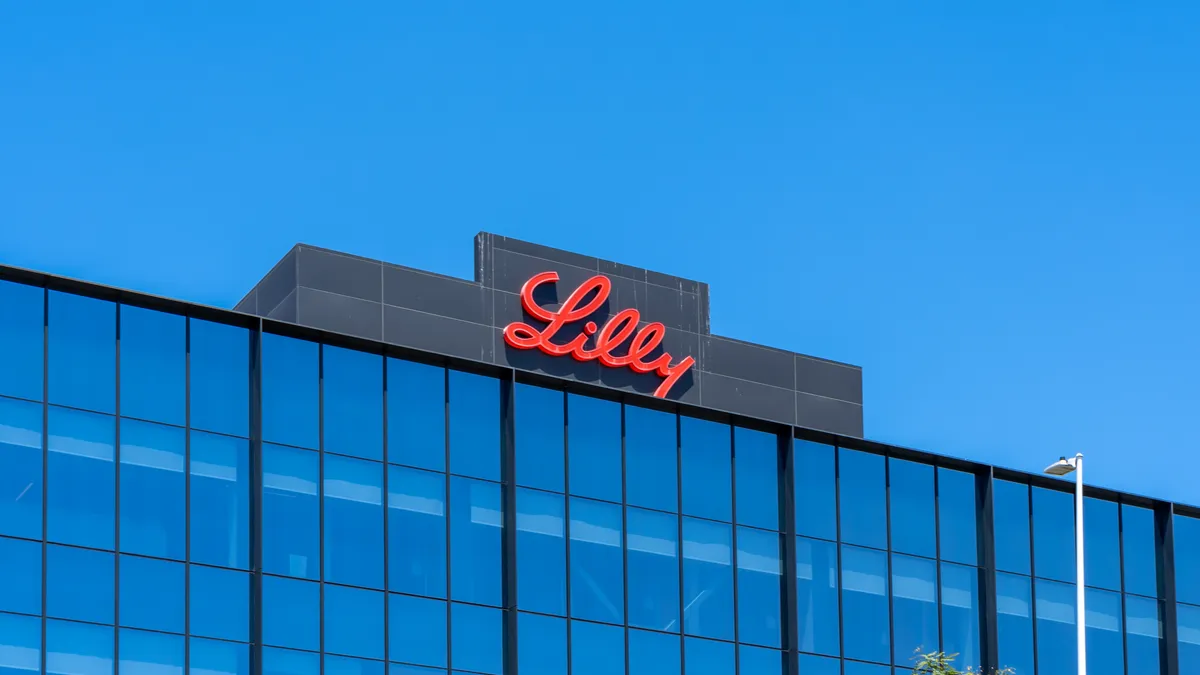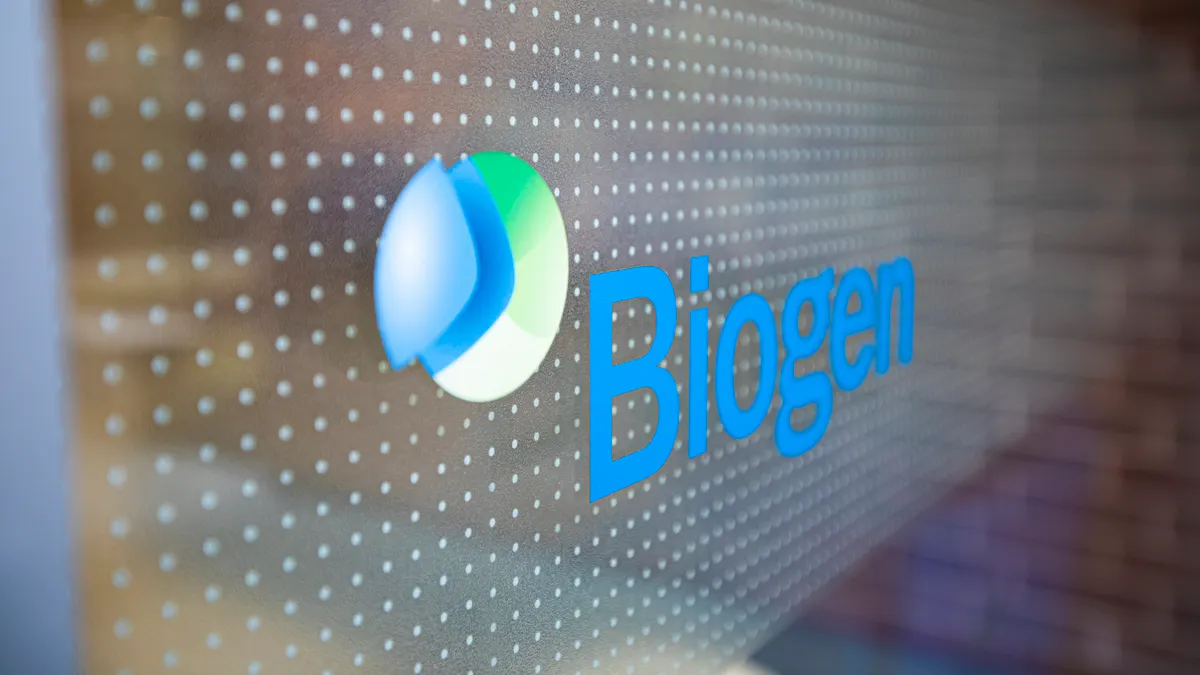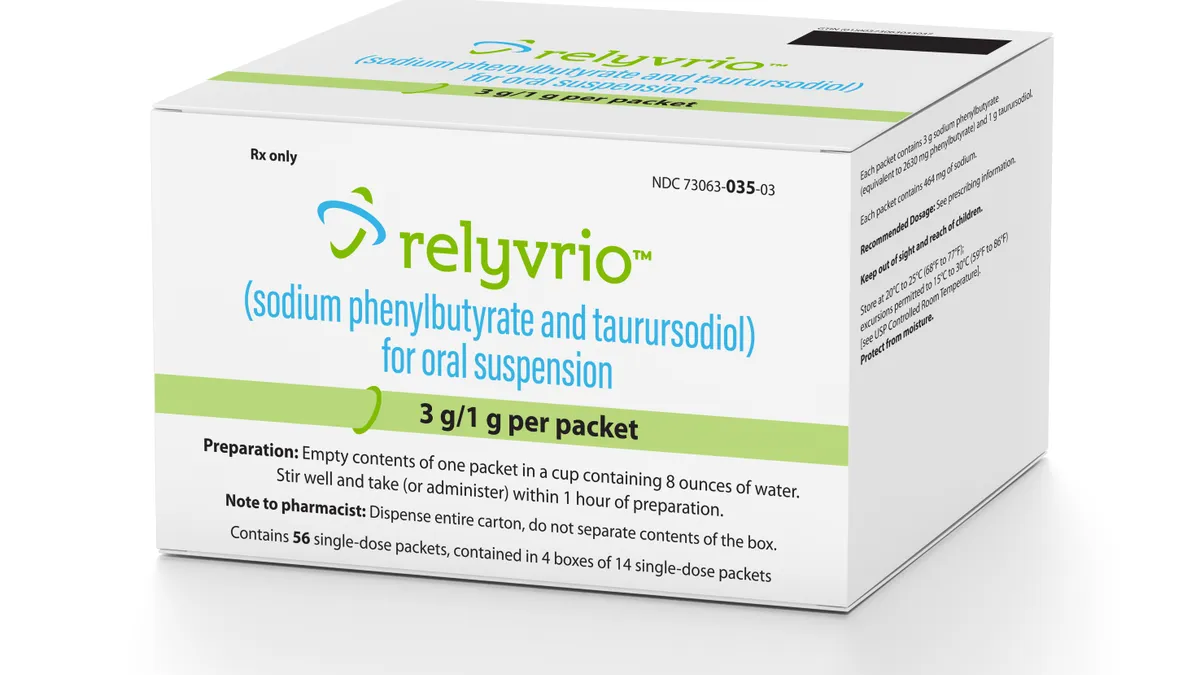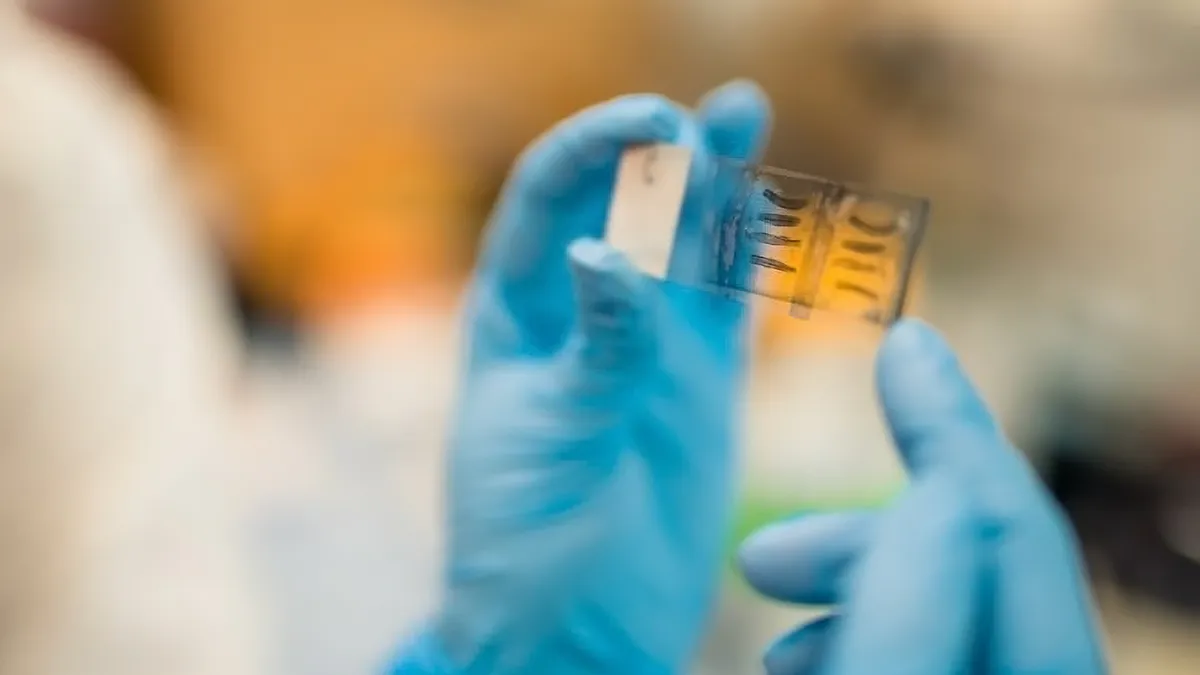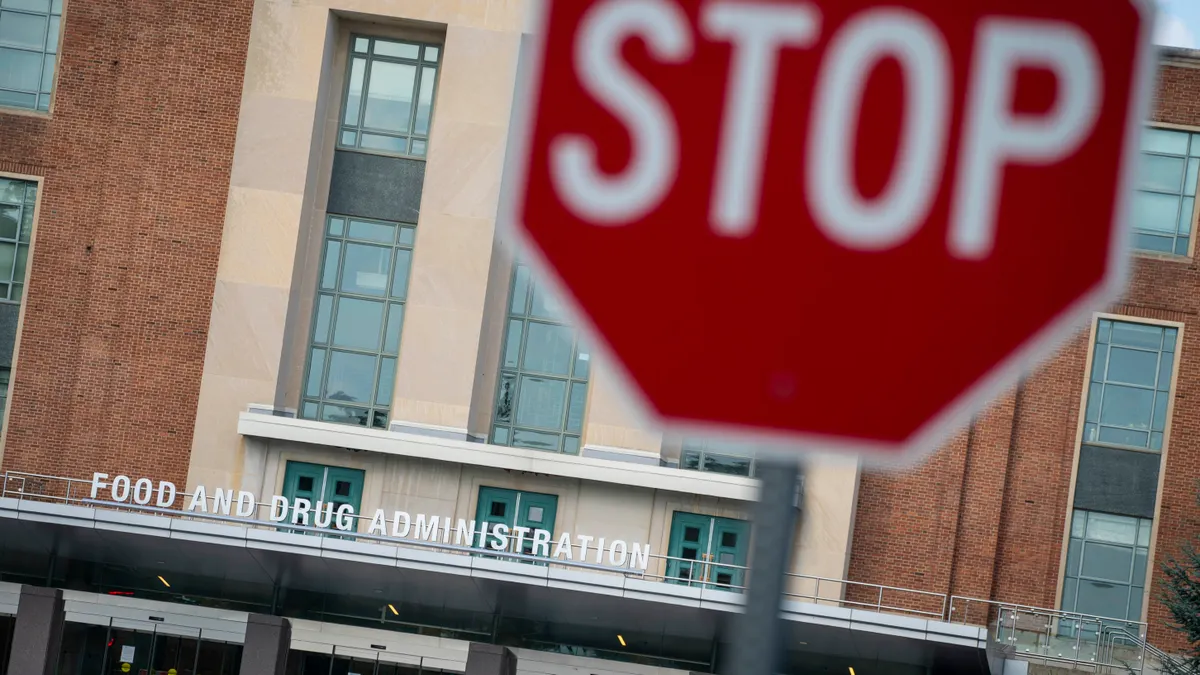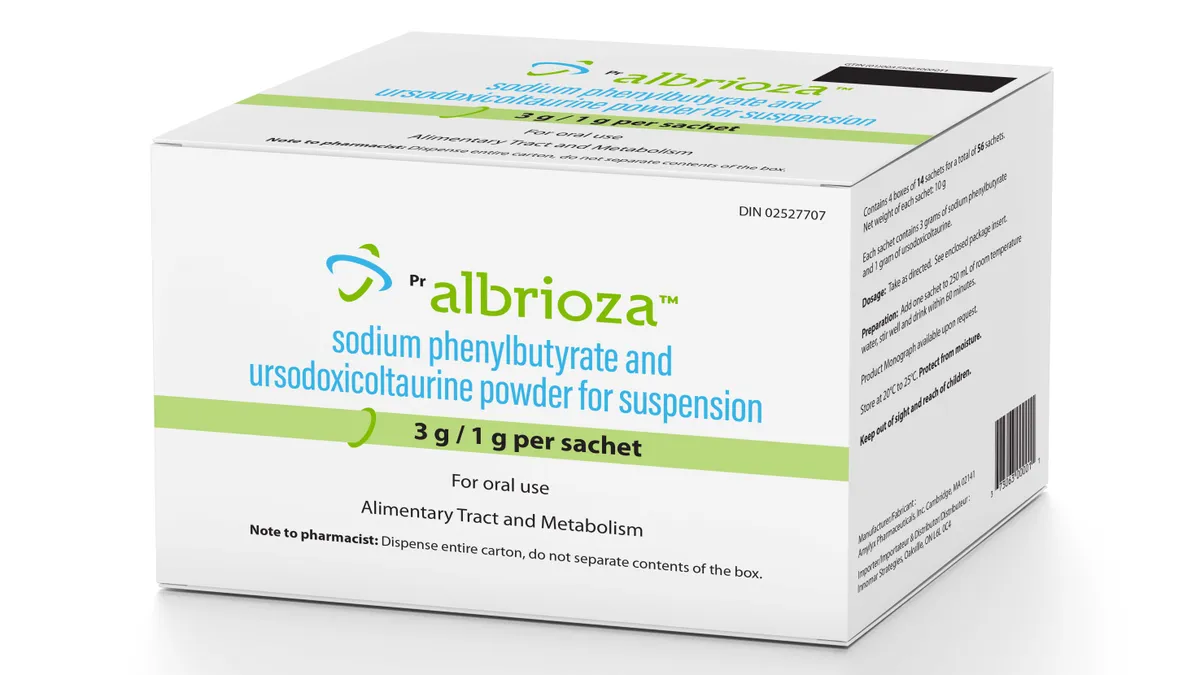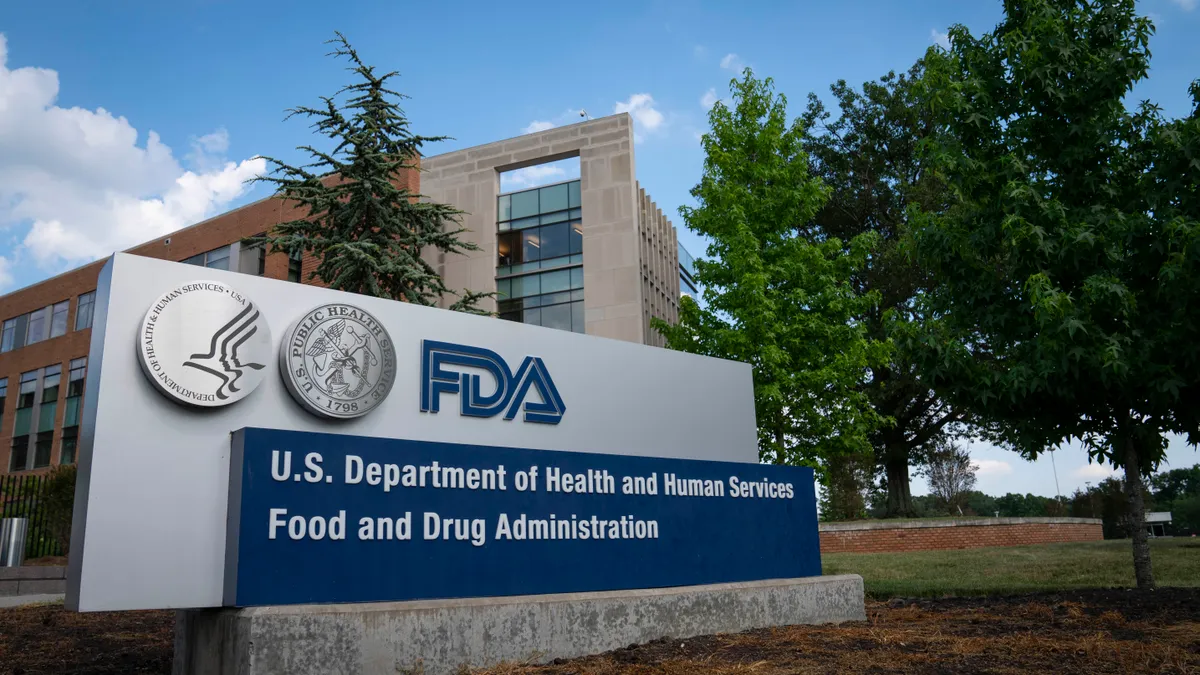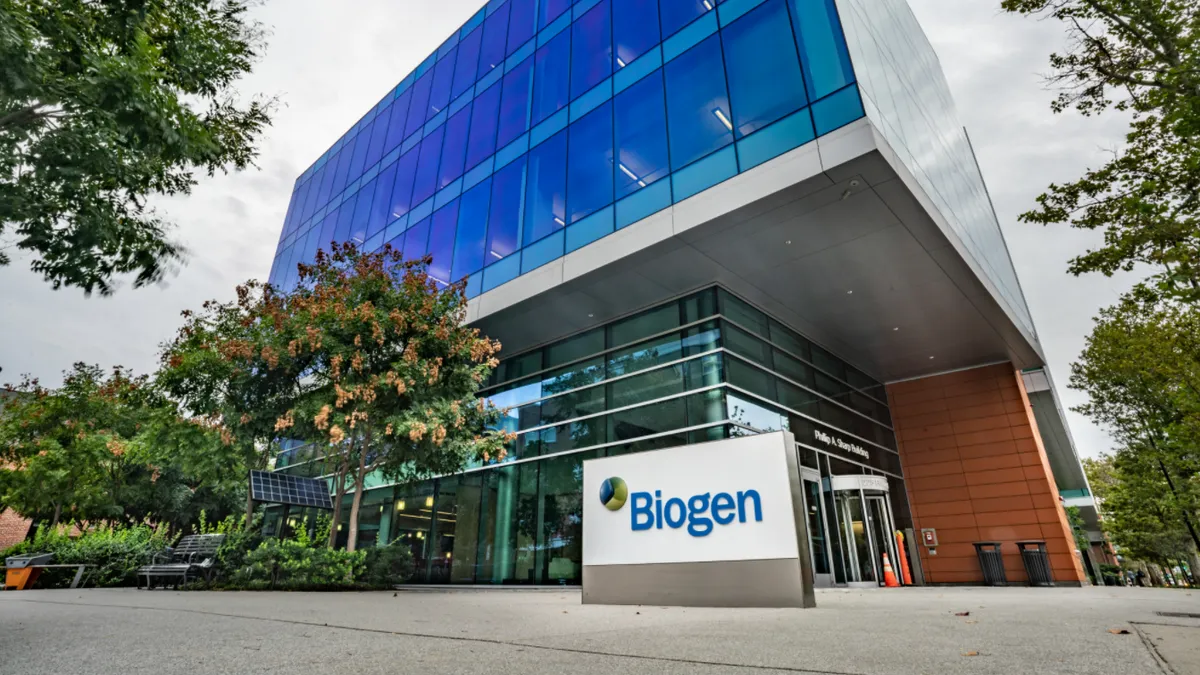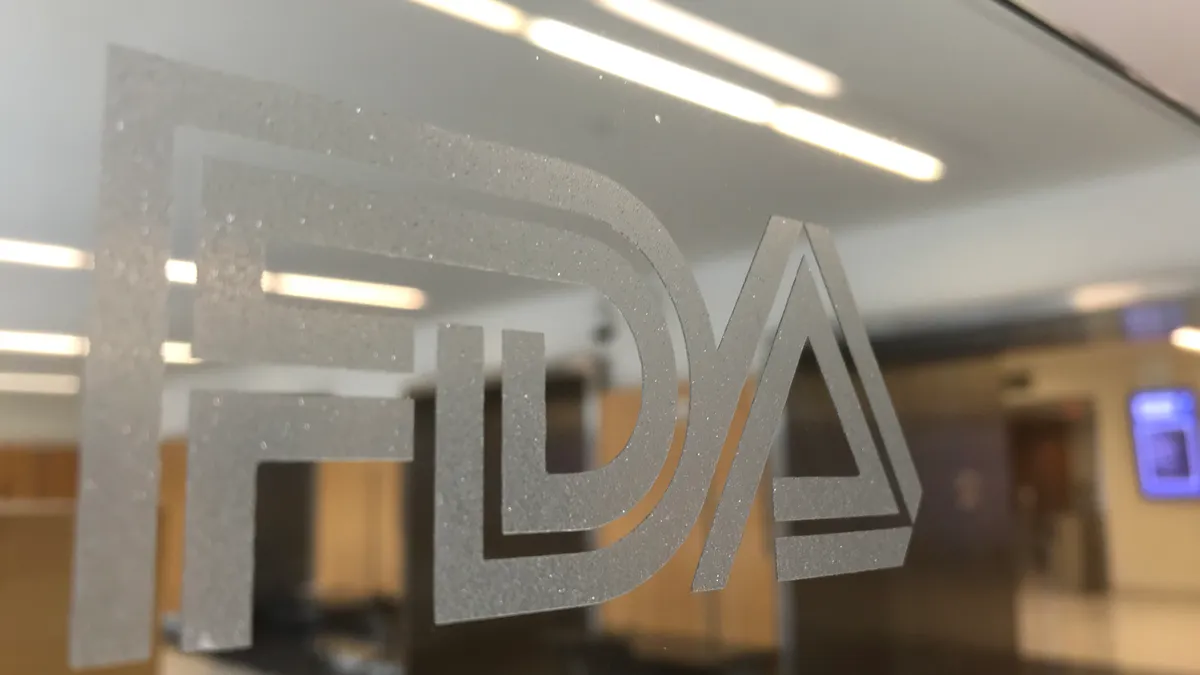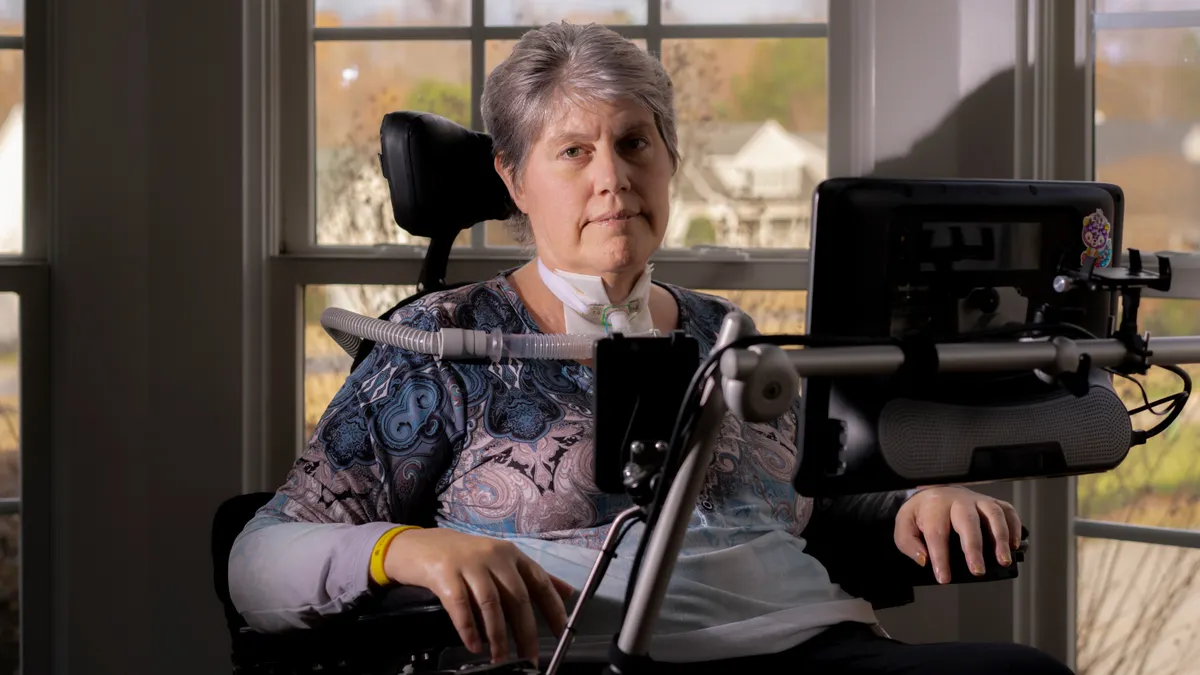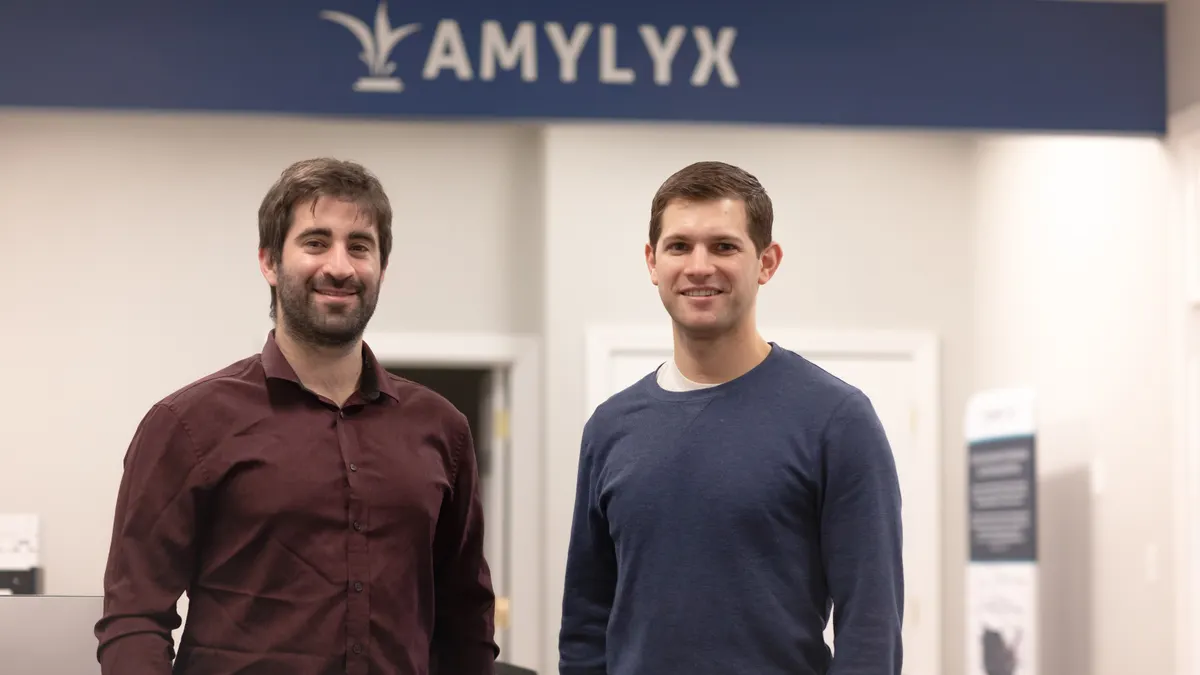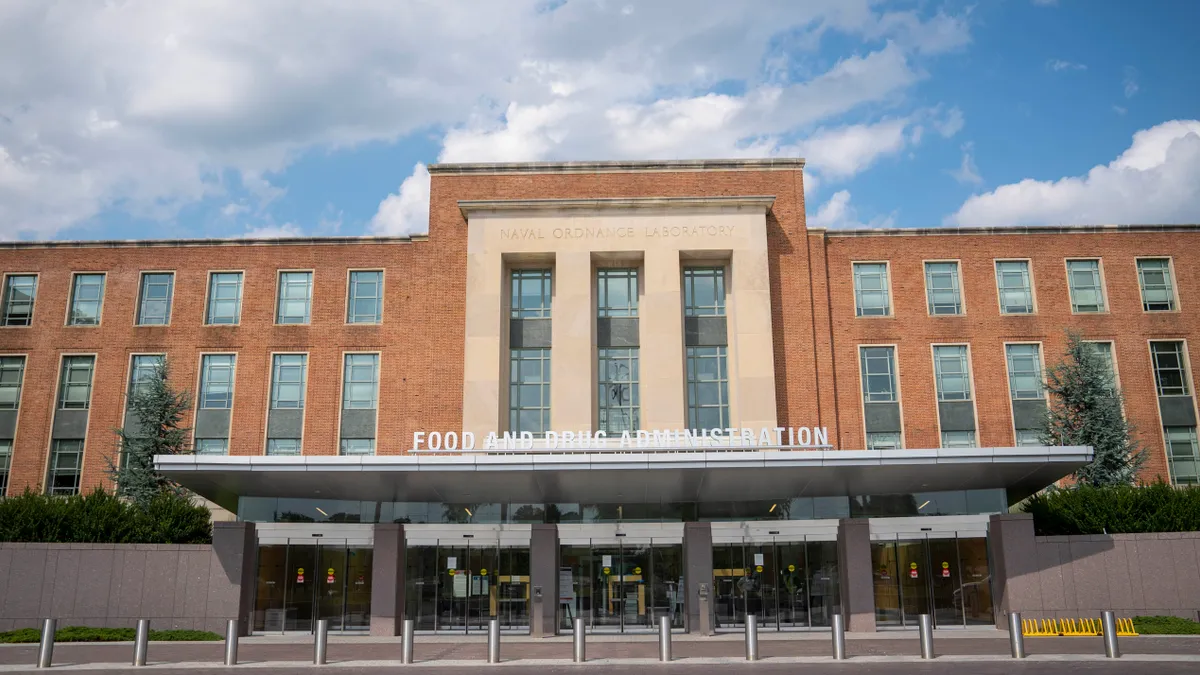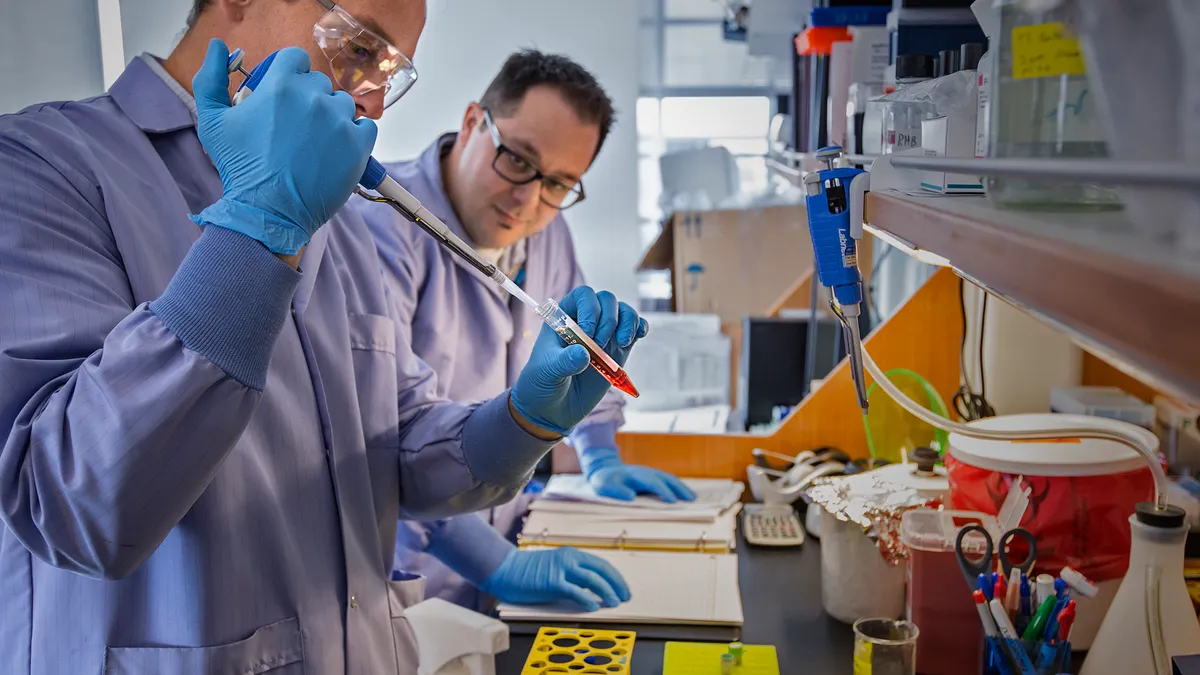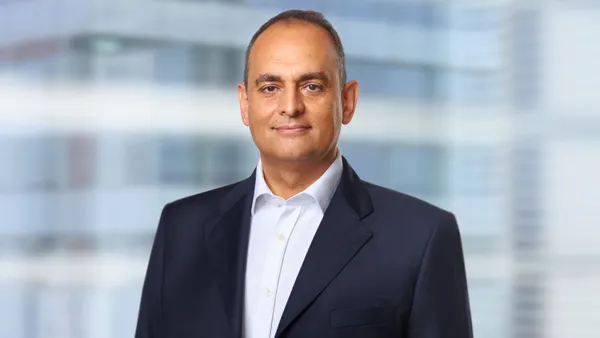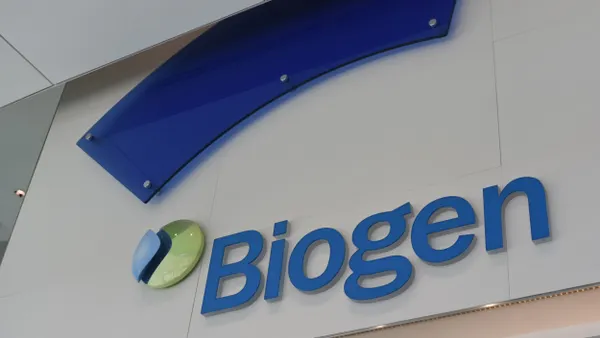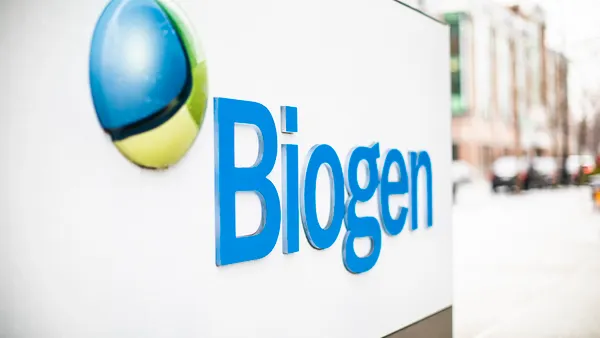Dewpoint Therapeutics, a young biotechnology company, could receive nearly half a billion dollars if all goes to plan in a new partnership focused on its experimental medicine for ALS.
Through a deal announced Wednesday, Dewpoint has given Mitsubishi Tanabe Pharma the exclusive right to license the medicine once it hits certain near-term research and development goals. Should Mitsubishi Tanabe choose to license the program, the Japan-based company would then be responsible for its clinical development and commercialization.
In exchange, Dewpoint has received an undisclosed upfront sum of money and could take home more through milestone and tiered royalty payments. The total value of the deal could reach as high as $480 million.
Mitsubishi Tanabe — a distant corporate cousin of the car manufacturer — already sells Radicava, one of the few drugs approved in the U.S. to treat amyotrophic lateral sclerosis. Radicava is available as an infusion or, since 2022, a mixture taken orally. Doctors have said the drug offers only modest effects and its administration, at least with the infused version, can be so cumbersome that patients often don’t find it worthwhile.
With limited treatment options, people with ALS currently live an average of two to five years after they are diagnosed. Roughly 90% of cases are classified as “sporadic,” meaning experts don’t know the root cause.
“ALS remains a critical area of unmet medical needs and [Mitsubishi Tanabe] is committed to addressing it, said Masao Nawano, head of the company’s research division, in a statement. Together with Dewpoint, “we have the potential to deliver meaningful innovations to patients and families affected by this devastating condition.”
Launched in 2019, Dewpoint believes that mysterious clusters of molecules may be a path to new drugs for cancer, heart conditions and nerve-destroying disorders like ALS. Studies have suggested these clusters, known as biomolecular condensates, are important in cell regulation and may causes diseases if they malfunction.
The idea has intrigued venture capitalists, giving rise to a few startups that debuted shortly after Dewpoint. Nereid Therapeutics launched in the middle of November 2020 with $50 million in funding from Apple Tree Partners. Two weeks later, Transition Bio unveiled itself and announced the closing of a seed funding round led by Lifeforce Capital.
Faze Medicines also emerged in late 2020, backed by powerful investment firms like Third Rock Ventures and Alexandria Venture Investments as well as large pharmaceutical companies like Novartis, AbbVie and Eli Lilly. Yet less than two years later, Faze abruptly shut down. The company’s science “did not progress sufficiently to meet our bar for further investment,” a Third Rock spokesperson said at the time.
Dewpoint, meanwhile, has continued to draw in money since its launch. The company inked collaborations with Bayer, Merck & Co., Pfizer and Novo Nordisk that collectively could be worth well over $1 billion. Some of that money hasn't materialized, though. The company reportedly lost its alliances with Merck and Pfizer, and laid off staff earlier this year.
Ameet Nathwani, Dewpoint’s CEO and a former Sanofi executive, said in a statement that Mitsubishi Tanabe is the “ideal partner” for the ALS program, given the company’s knowledge of the disease and its “global clinical capability and expansive patient network.”
Dewpoint’s drug is meant to treat ALS by breaking up abnormal accumulations of a protein called TDP-43. This protein is essential for processing RNA, and some scientists believe that when it stops functioning correctly, or when there isn’t enough of it in the core of nerve cells, diseases like ALS can develop.









